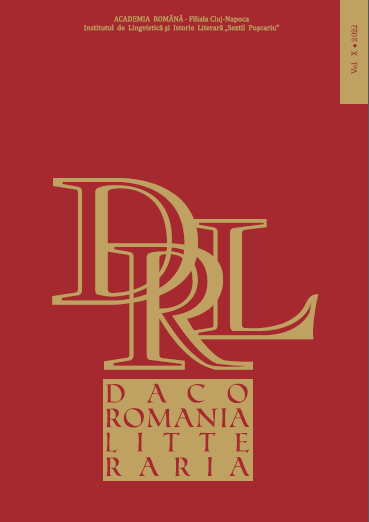To Tell in Order to Forget: Nadiya Surovtsovaʼs Memoirs of the Repressions of 1927–1953
To Tell in Order to Forget: Nadiya Surovtsovaʼs Memoirs of the Repressions of 1927–1953
Author(s): Snizhana ZhygunSubject(s): Language and Literature Studies, Studies of Literature, Comparative Study of Literature, Ukrainian Literature, Theory of Literature, Sociology of Literature
Published by: Academia Română, Filiala Cluj-Napoca
Keywords: memoirs; trauma narrative; contradictions; omissions; unspoken;
Summary/Abstract: The article deals with the role of autobiographical writings of women intellectuals and their depiction of the post-war transitions, and focuses on the conflict between the object and the technique of narration in a narrative of unresolved trauma. The study is based on the memoirs of Ukrainian journalist and scholar Nadiya Surovtsova about her unjustified arrest and 27-year stay in prisons, camps and exile. The peculiarity of these memoirs is that they were written in the USSR, when the author was under the supervision of repressive authorities. Writing memoirs was supposed to help Surovtsova forget the Gulag’s experience and create a less traumatic version of her past, for herself and for the ideological society that refused to discuss the crimes of the authorities. The circumstances of the constant threat of new repressions prevented the creation of a logical and consecutive narrative. That is why the narration is characterized by fragmentation, internal contradictions, omissions, metaphors, and euphemisms. The article considers how the themes of 1) a falsely accused communist and 2) womenʼs experience are developing and conflicting in the second part of her memoirs (titled “On the Other Side”). The general strategy of Surovtsovaʼs writing is silencing the most annoying moments. Omitting crimes and brutality, Surovtsova was trying to forget them and write a better story of her past. In the last part of the memoirs, she rejects euphemisms and omissions, regains the ability to talk about authentic experiences and testifies not only about prison crimes but also about the theft of her life and opportunity of self-realisation. The case of Nadiya Surovtsova’s Memoirs demonstrates how the ideological pressure and patriarchal prejudices about what is worth telling from a womanʼs life caused the traumatic physical and emotional experiences to be a realm of the unspoken and how it needs to be read, decoding the story from contradictions and omissions.
Journal: Dacoromania litteraria
- Issue Year: 10/2023
- Issue No: 1
- Page Range: 126-145
- Page Count: 20
- Language: English

